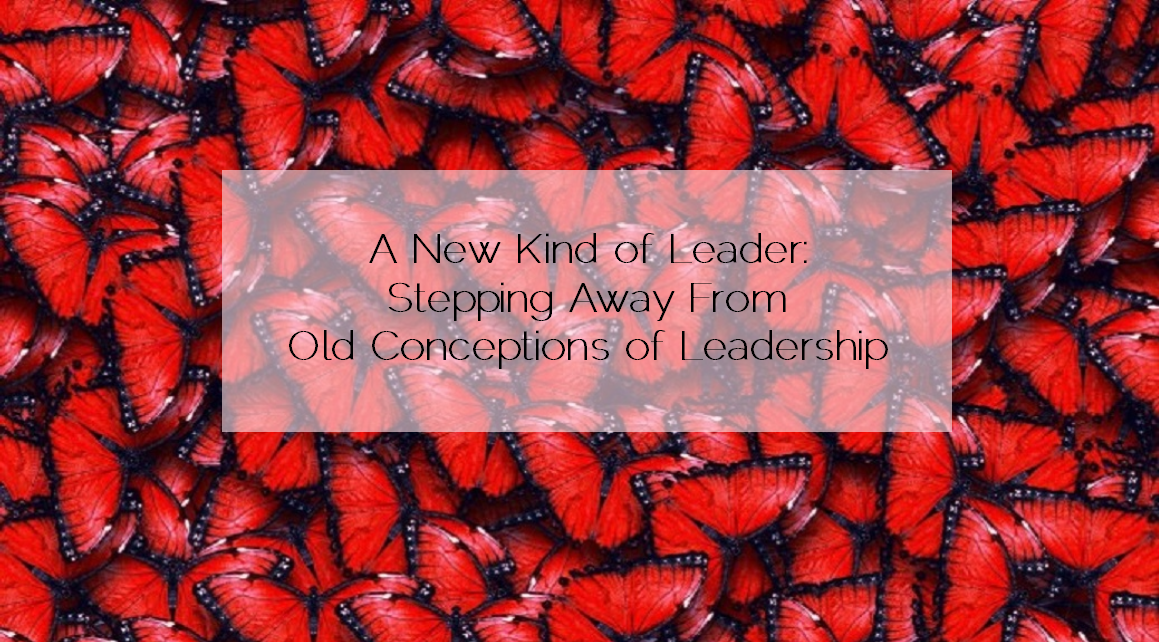My concern about the advancement of humanity through the development of each community makes me naturally think a lot about the question of what makes a good leader. I find myself often wondering how the conceptions about leadership that I encounter in my reading and in my conversations with other can ever pave the way to empowered individuals building vibrant communities. And I think it’s simple: the old conceptions of leadership have got to completely transform if we are to figure out how to create a different, better world.
One of the things we are told is that to make a change, we need natural leaders to step up and lead the way. There are a couple of things that bug me about this, but for the sake of not writing a TL; DR post, I’ll stick to just one (you’re welcome!)
One Person to Solve Complex Problems?
It feels unfair that solving complex, multi-layered problems are put on the shoulders of leaders. In the past, governance was (relatively to today) simple—but so were social issues leaders had to deal with. Especially now that we have a population that is increasingly educated and empowered (in the good and bad way), the social issues that emerge are a lot more complex.
For example, there is no way that health issues in developed countries can be easily solved from the top down without some sort of repercussion. If the government taxes all sugary foods to pay for healthcare, or if the government does nothing about the health issues emerging from the increase in sugary foods—either way, there will be a backlash to deal with. Leaders can’t do it on their own and not because of their inherent capacity or lack thereof; rather, it’s impossible anymore to make a change without everyone’s help. That’s how independent yet interconnected we have become.
Changing Leadership: Caught between the Old and the New
Some communities are trying to change the way they run their affairs. It can be quite difficult for them to break away from patterns that basically have governed human affairs for thousands of years; caught in between the old way and the new way of doing things, many a strange state of affairs can emerge. Two in particular intrigue me.
The first one is how a number of people (in this situation, “the people” refers to those being governed) perceive and react to leaders who are striving to establish a new type of governance. On the one hand, the people still manage to find a thousand things to criticise and see the leader at times as a pushy bully out of touch with reality. Most interestingly, the people still refuse to follow the leader; and when you hear why they refuse, it sounds like the same reasons why they refuse to follow leaders stuck in the older, top-down way of doing things. This seems to be a terrible lose-lose situation; the new-style leader will (of course) make mistakes and repeat old patterns of leadership (we have been governing with a top-down mentality for a couple of millennia now, after all); but instead of contributing to the leader’s learning by actively being involved, the people are cutting down any effort being made.
The second one is when leaders use words to describe their governance style as different but in practice, are pretty much doing the same as always—and the people accept that this leader is avant-garde when in fact, he is not. It’s a place of denial where there can be no growth or change but because we think we have said growth and change, we end up stuck in a pool of stagnating ideas without even realising it.
Moving Ahead: Figuring out a New Style of Leadership
In the face of all the suffering that surrounds us, it seems vital to resolve this question of leadership. And while we do need everyone to participate in the transformation of society, there is a need to organize ourselves into a system in which some are active followers and others are humble leaders. There are plenty of leaders around us who know how to listen, how to bring people and their opinions together, and how to lead the group into the best decision it can take. One major challenge is to realise that these ‘real’ leaders are very, very different from our conception of what a leader should be. It is up to every single one of us to learn to identify what a real leader is and to lend them our support in taking their place and learning to lead in a way quite different from anything we have seen before.
Have you seen a “new style of governance” being tested? If so, have you been intrigued, either positively or negatively, by what you saw? Drop a line below, I would love to hear about it!

